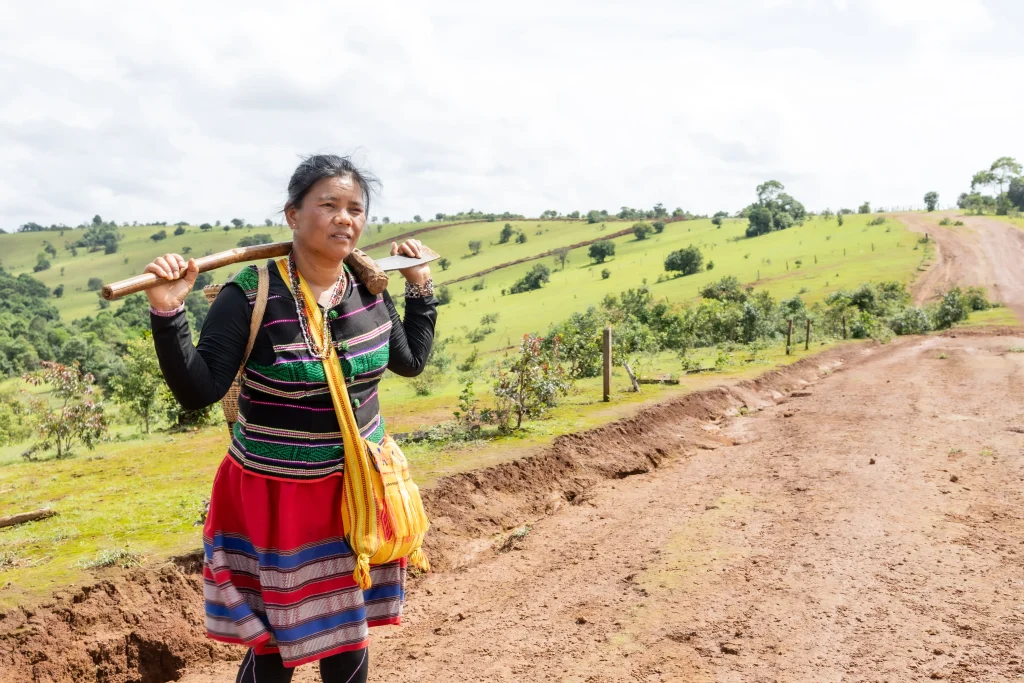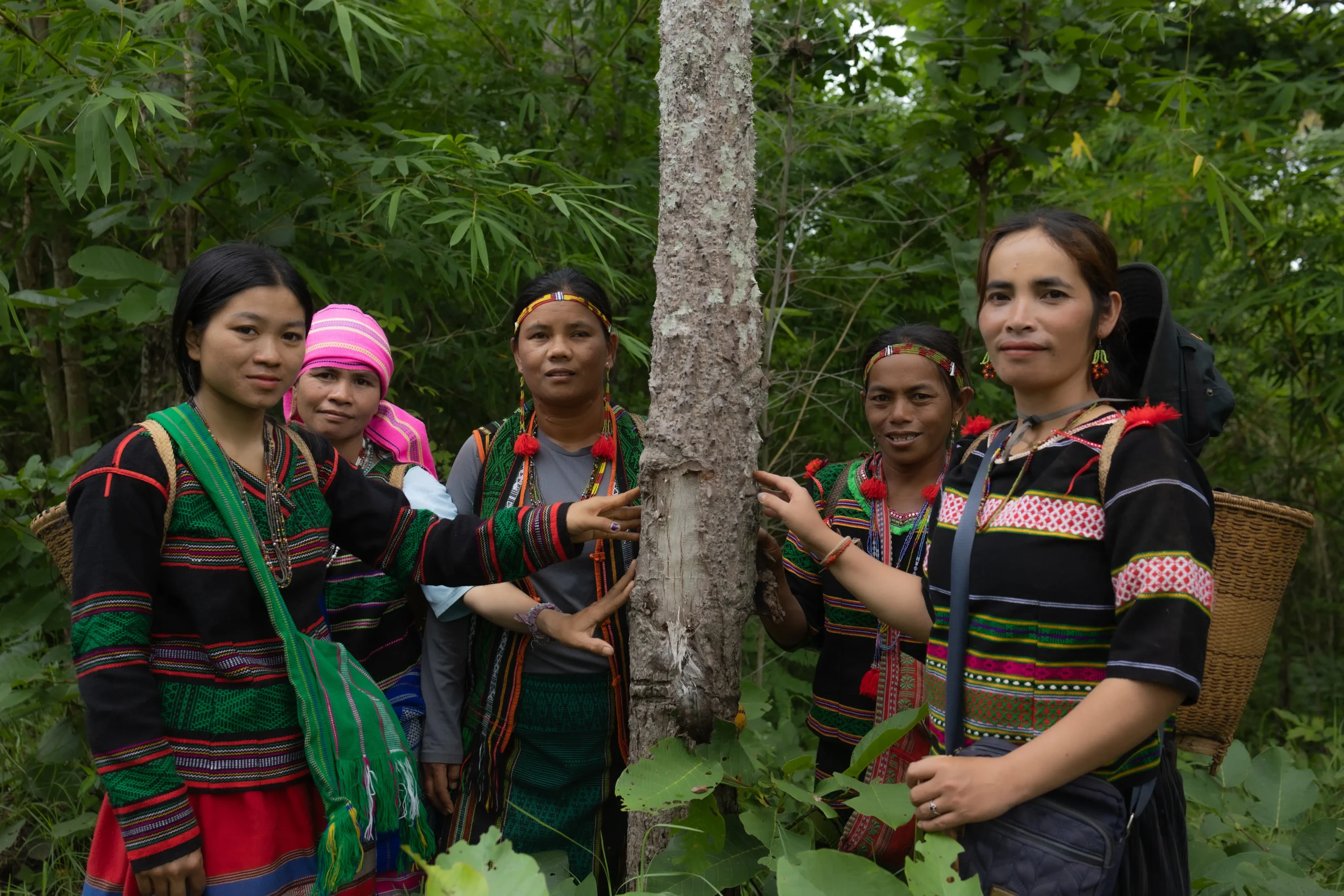
Reoun Heng – a Bunong Women from Cambodia – told herself one day that she wanted to be independent and work for herself, without having to depend on the government or on anyone. She was orphaned at a very young age and accustomed to fending for herself. Nonetheless, her yearning for independence did not lead her to turn her back on her community but rather, the exact opposite. Heng threw herself into helping others and created opportunities for entrepreneurial activity and income generation not only for herself, but also for her family, community, and many other Indigenous Bunong Women in the region.
In the closest town’s market, Reoun Heng began selling fruit and vegetables that she grew on her small plot of land and gathered in the community forest. However, the nearest town is located 13 kilometers from her home in Sen Monorom, the capital of the province of Mondulkiri, adjacent to the border with Vietnam. Each morning that she wanted to sell her produce, Reoun Heng had to awake at 4 a.m. to cover those 13 kilometers on foot or, with any luck, by motorcycle. Otherwise, she would have to pay someone to serve as an intermediary, and that person would retain a significant portion of her earnings.
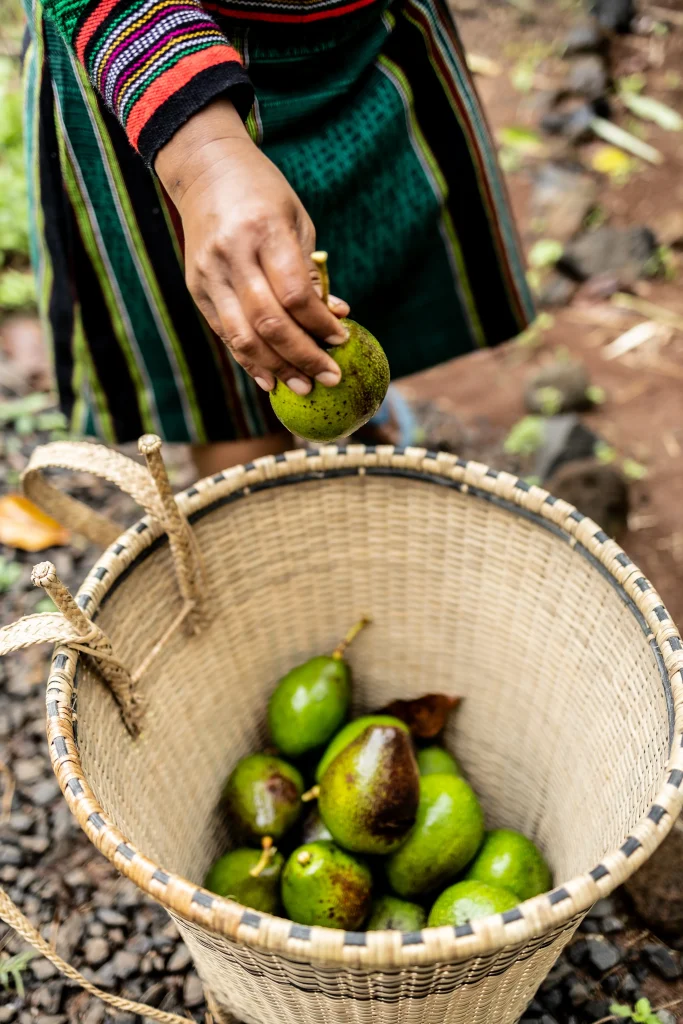


Once she reached the market, Reoun had to haul between five and 10 kilos of vegetables on her back to sell them. Oftentimes people would buy one item for 15 cents and then resell it in another store for two dollars. She had no place to sit down in the market to watch her things, nor a bathroom in which to wash herself. She would return home exhausted, with a mere five or 10 dollars in her pocket. These earnings did not compensate for the work and time it had taken her to grow the vegetables and gather the wild fruit in the forest. During the rainy season, the sale was even worse, because the road and market were filled with mud.
Reoun Heng did not only have to deal with this unjust situation; she also confronted the majority of the region’s indigenous women who wanted to sell their products in the province’s market. The mothers even had to also carry their babies on their backs as they sold their products.
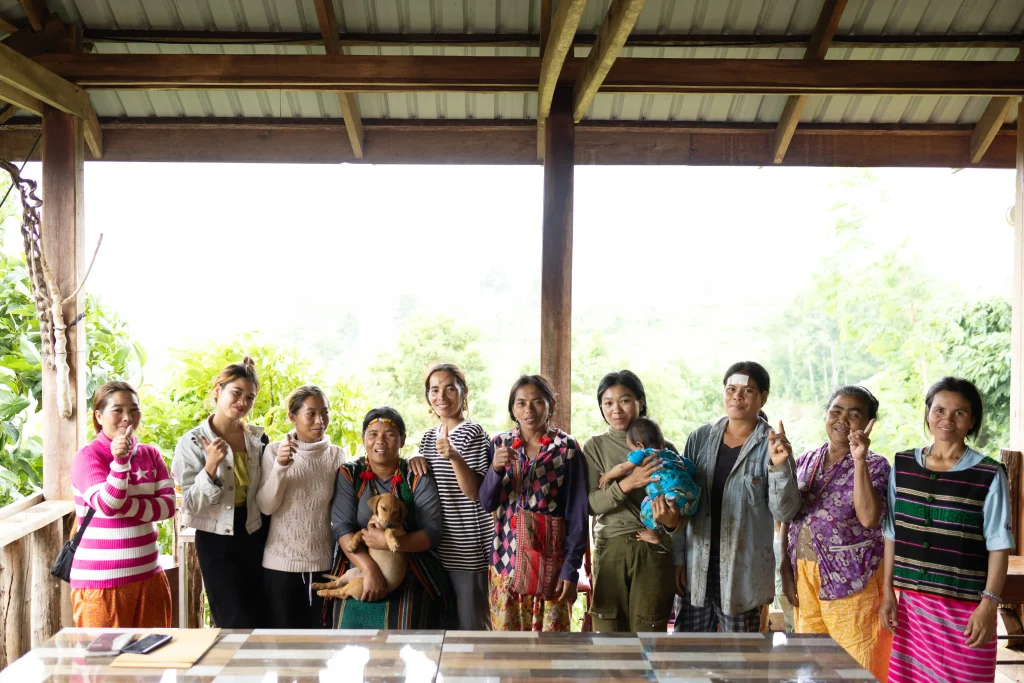
In 2011, Heng decided to change the situation. She partnered with the Cambodian Indigenous Women’s Association (CIWA), and thanks to financial support from the International Labour Organization, began a project to ask the provincial government for a space in the market exclusively for indigenous women. Heng fostered dialogue with the community authorities in the district and province to rent such a space. Once she obtained the space, Heng worked with indigenous women in pursuit of three goals: maintaining the space clean and orderly; adding strategies for competitive sales; and finding funding to build a bathroom in the market.
In 2022, thanks to her skills as a community leader, Reoun promoted the creation of a provincial indigenous market and was elected member of the organization committee. That same year, she met with local authorities to request a market renovation plan, and in 2023 coordinated the provision of materials for renovating the door and fence that protects the market. She also promoted the sale of organic products free from pesticides, in order to maintain the indigenous health and traditions of her community in the cultivation and gathering of fruit, as well as maintain a harmonious relationship with nature.


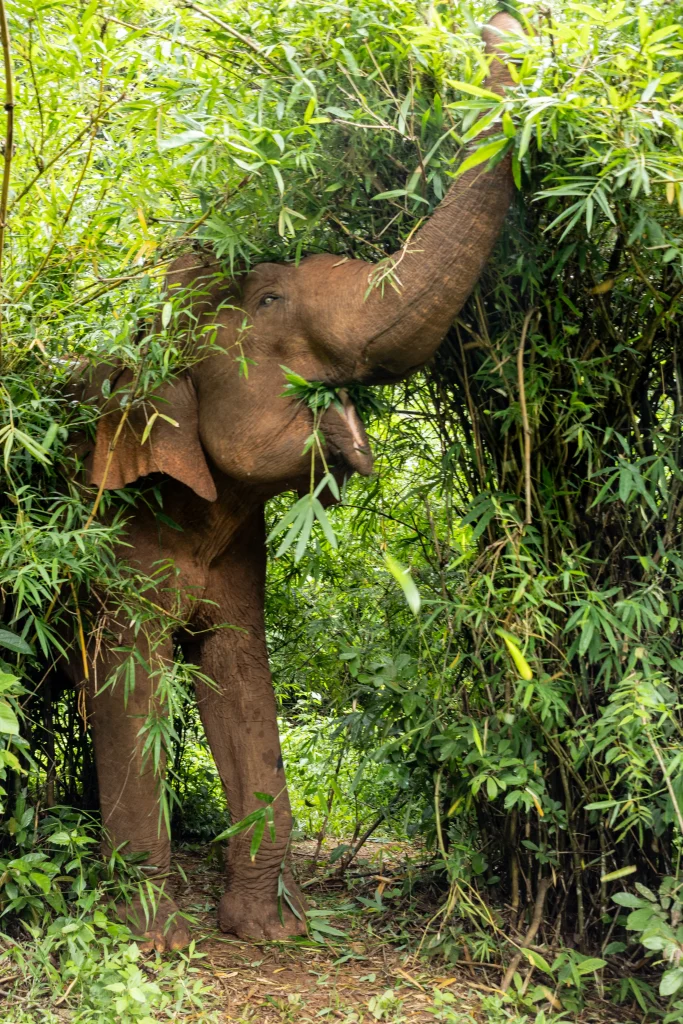
Reoun Heng’s struggle has transformed the lives of around 100 indigenous women sellers from various communities in the district. They now have a place where they can sell and keep an eye on their products, use the toilet, and rest when they need to do so. With the income they earn, they are able to pay for school fees, buy supplies and food, [and] buy medicine when they fall ill.

Reoun Heng’s struggle has transformed the lives of around 100 indigenous women sellers from various communities in the district. They now have a place where they can sell and keep an eye on their products, use the toilet, and rest when they need to do so.
Defend spiritual places so as to reverse injustice
Notwithstanding, Reoun Heng has not only fought for the rights indigenous saleswomen. In 2012 she launched her own tourism project as a guide and opened a restaurant and guesthouse in the town of Poulong. Heng asserts that she became a tour guide because she loves feeling connected to nature and wild animals, and wanted to share that passion with visitors to her region. The restaurant and guesthouse not only serve tourists, but also provide employment to other Indigenous Women in her community.
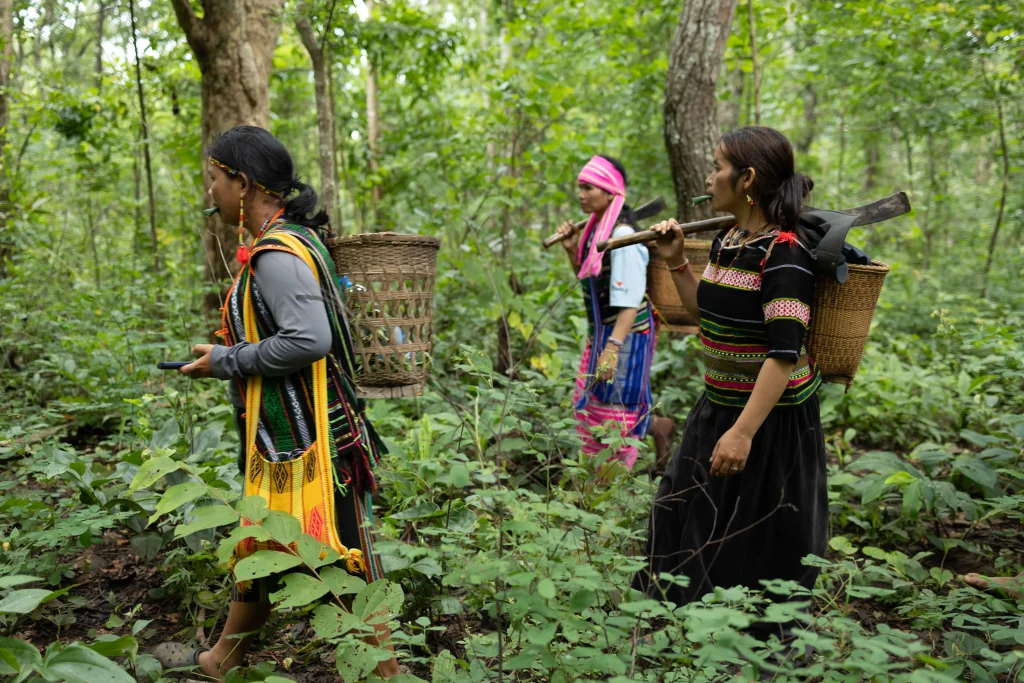
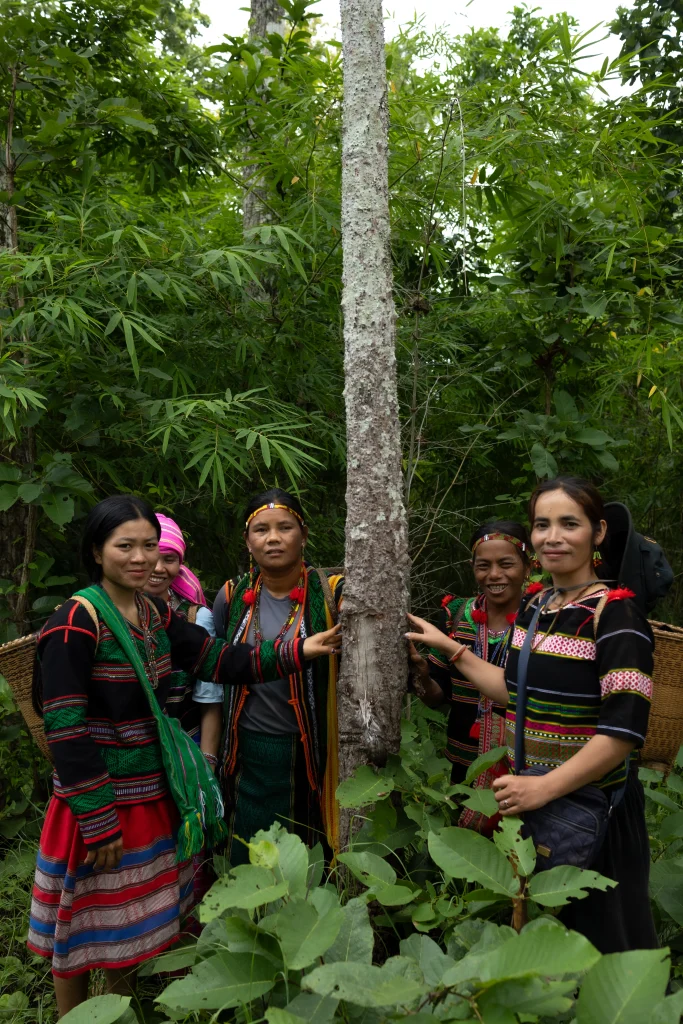
When guiding tourists in the forest and to the Radang sacred mountain, she soon realized that the spiritual and burial places of Mouch Ou Pong Mab and the Glgnove Krach community forest had been damaged. In 2019, several wealthy members of the community joined with provincial, communal, and district authorities in a land-grabbing scheme of community lands in the forest and sacred mountain, in order to transform them into agricultural fields for their own benefit.
According to Cambodian law, the transfer of community lands must transpire through a process of prior consultation with and free and informed consent by the community. Thus, powerful community members falsified documents in order to obtain the approval of the community chief. They then gave each family US$200 in exchange for signing a piece of paper and affixing their stamp. This later appeared in a falsified document granting consent to sell the sacred mountain.
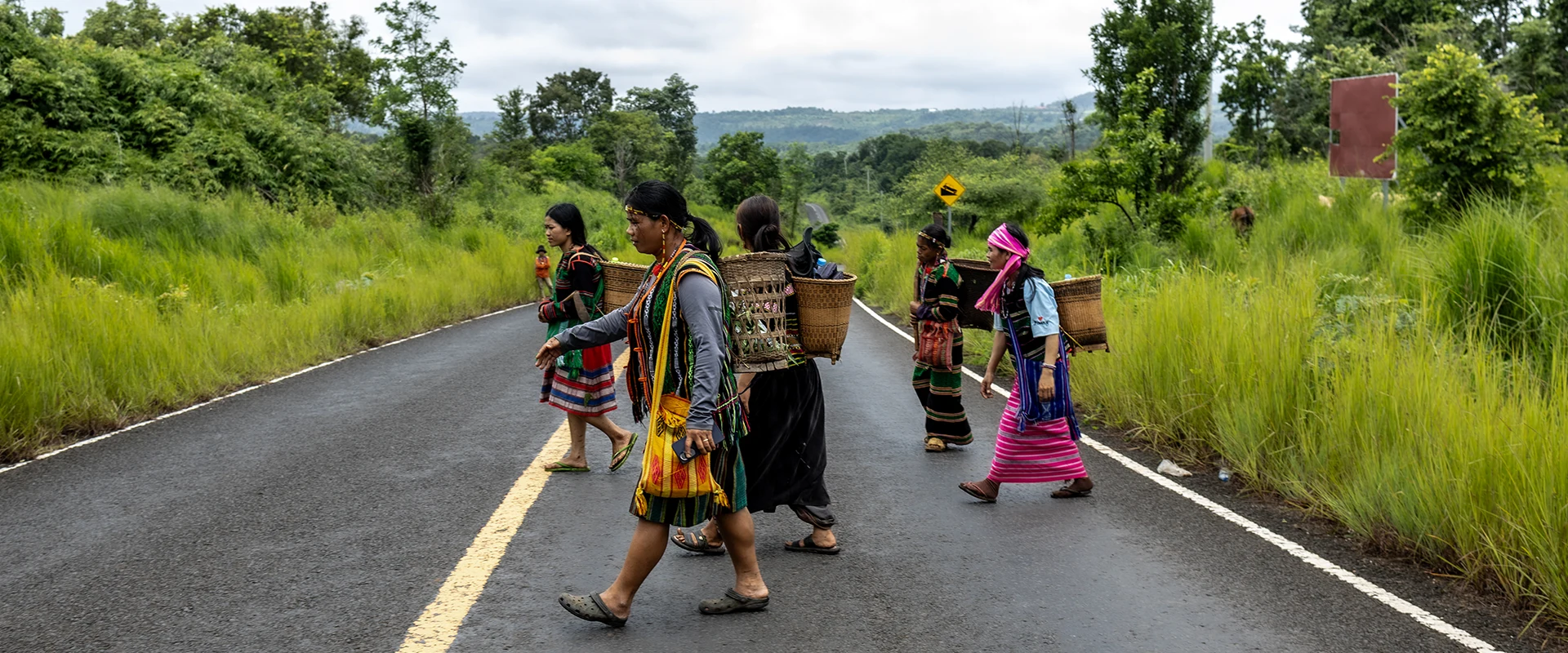
The land-grab generated imbalances in the community and unusual incidents began to occur. People would suddenly die or fall ill, and some even committed suicide. Community members were no longer able to gather firewood, fruit, vegetables, or honey from the forest, nor could they graze their animals. “Many people were worried they’d lose their culture and identity. Before that time, not even a small tree had been violated,” explains Reoun Heng.
In the face of such injustice, Reoun Heng joined the Indigenous Community Rhan Khon Nhos as a community volunteer to defend her territory. They received legal, technical, and financial support from the Cambodian Indigenous Peoples Organization (CIPO) to ask for the return of their lands to the community and the invalidation of the consent document.


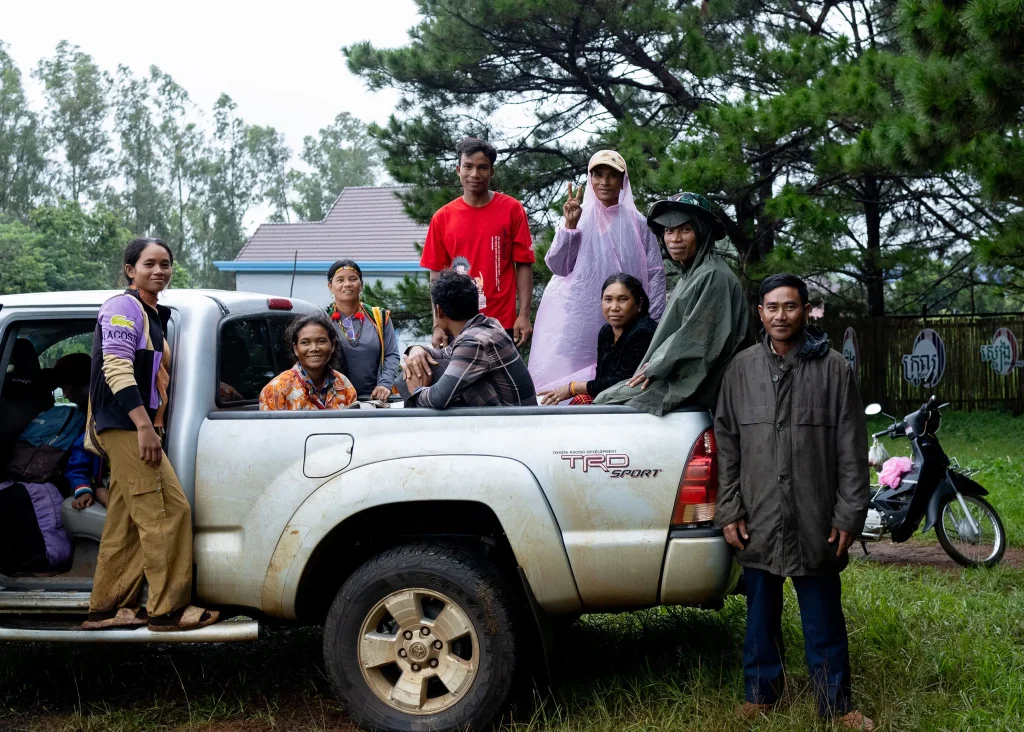
Many people were worried about losing their culture and identity. Before, not even a small tree had been violated.
explains Reoun Heng
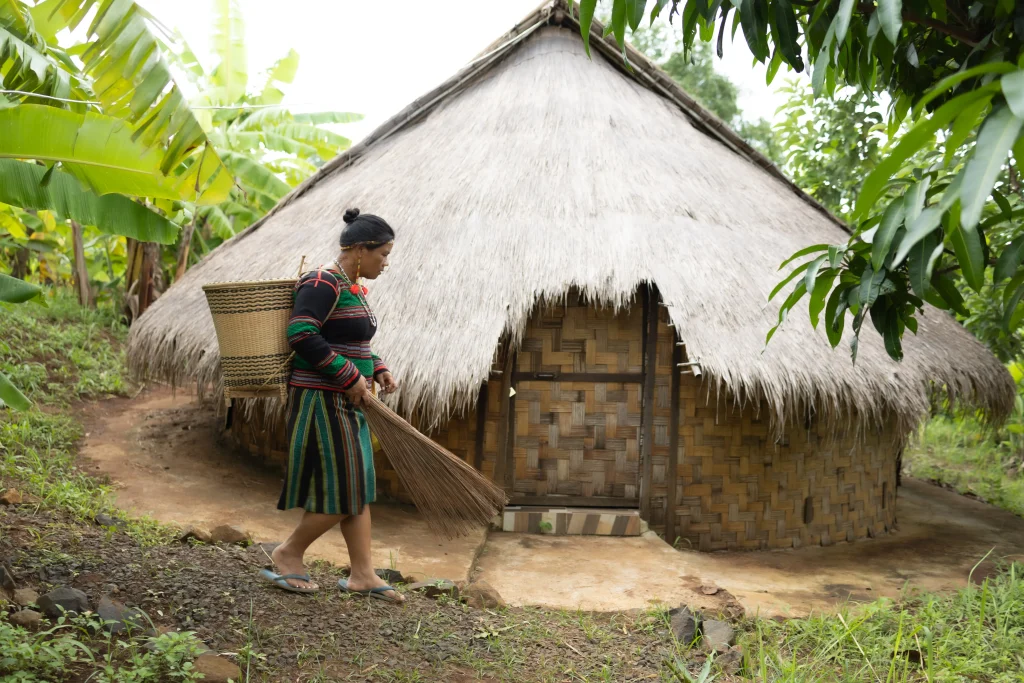
Debido a su activismo, Heng fue demandada en los tribunales provinciales, proceso que sigue en curso en la corte de apelación. Por todo ello, Reoun tuvo que cerrar temporalmente el restaurante y la casa de huéspedes, y cada vez tiene menos tiempo para trabajar como guía turística. Dicen que su casa se parece a una casa de la caridad; sin embargo, sus prioridades siguen siendo luchar por los derechos individuales y colectivos de las Mujeres y los Pueblos Indígenas, mantener vivo el sistema alimentario ancestral a través del mercado que inició y revertir las injusticias.


